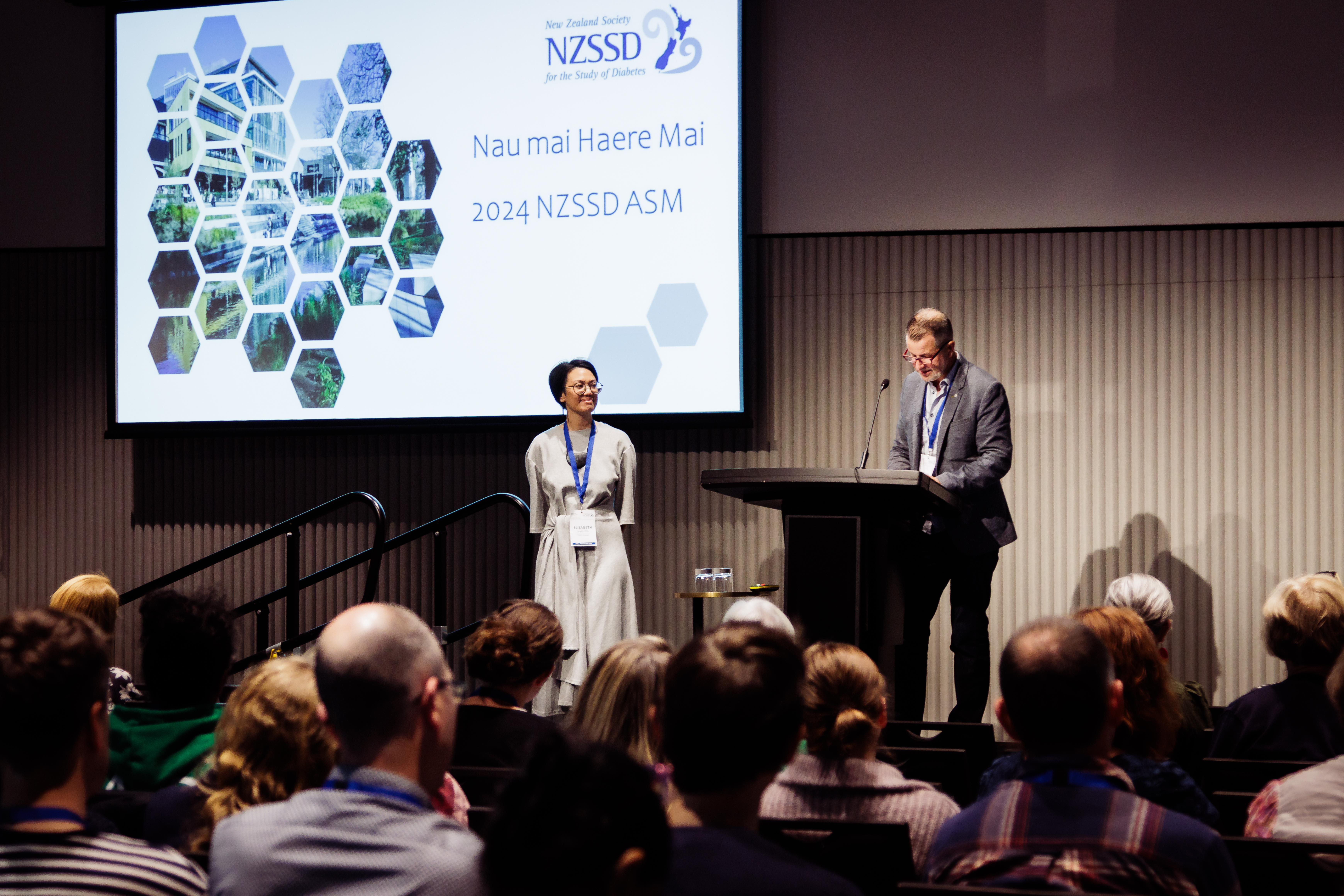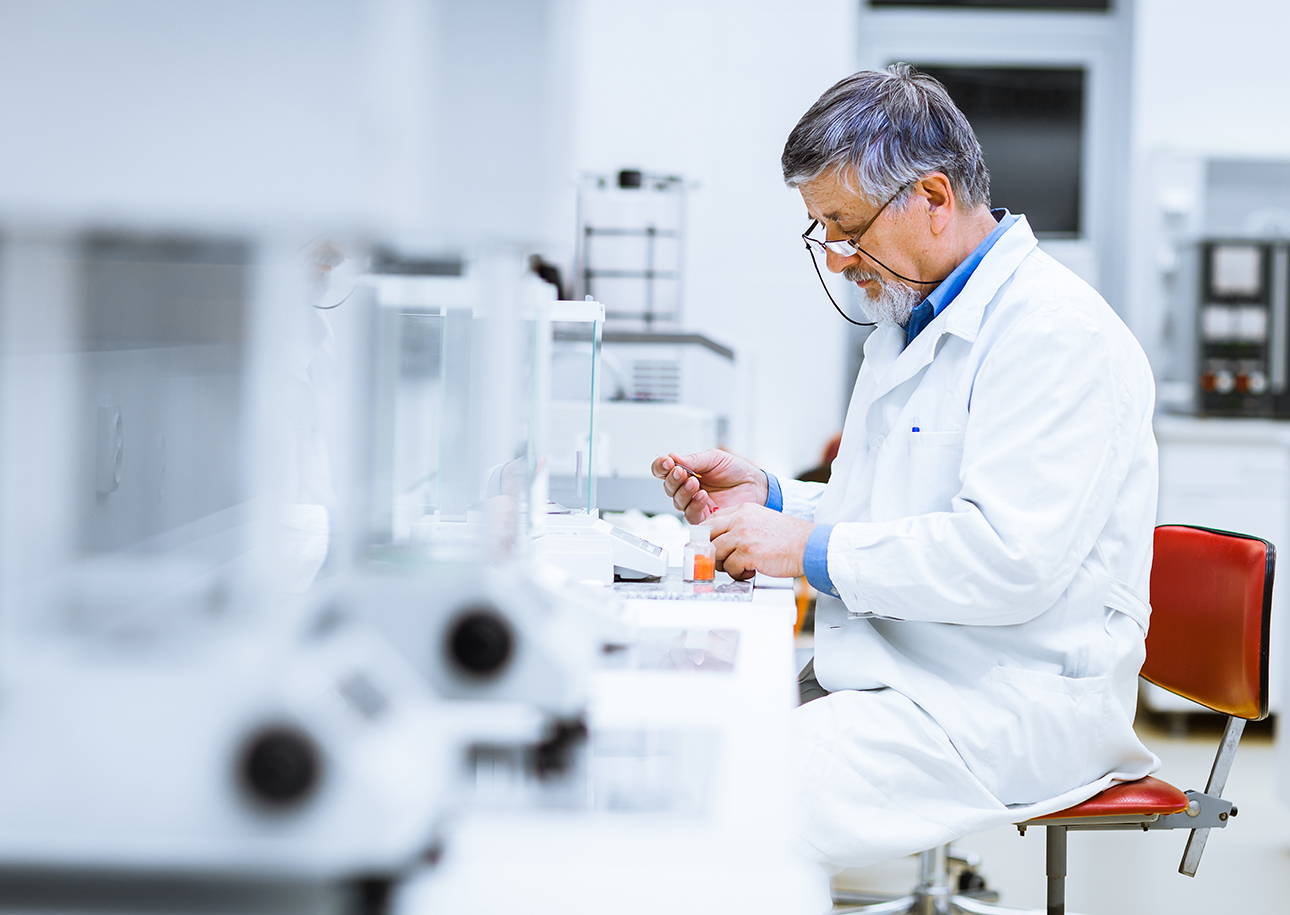Case Study
Interview: Elizabeth Lewis-Hills
Elizabeth Lewis-Hills was interviewed about her experience of being awarded a Diabetes New Zealand Research Foundation Fellowship. These are the original interview questions and her responses.
Can you tell us about your motivation and inspiration for focusing on improving health outcomes for Māori wāhine with diabetes in pregnancy?
My motivation stems from my extensive experience as a Clinical Nurse Specialist in Diabetes in Pregnancy at Waikato Regional Diabetes Services. Witnessing firsthand the challenges faced by Māori wāhine in this context, I felt compelled to make a difference. My own background as a wife, māmā of four rangatahi, and my Māori and Thai whakapapa further fuelled my dedication to address the disparities and work towards better health outcomes for this community.
Could you elaborate on how your research project aligns with the mission of Diabetes New Zealand Research Foundation and its impact on New Zealand?
My project, Ngā Hua o te Kōpū: Reimagining Diabetes in Pregnancy Service Delivery in Aotearoa, closely aligns with the foundation's goal of ending the significant harm caused by diabetes in New Zealand. By focusing on strength-based approaches rooted in kaupapa Māori principles, I aim to empower people with diabetes, provide proper care, and prevent the condition, especially within the Māori community. Through transformative research, I seek to amplify the voices of wāhine Māori and drive positive changes in health care delivery, ultimately improving overall Māori hauora and reducing diabetes-related complications.
How do you plan to integrate kaupapa Māori principles into your research methodology and what outcomes are you expecting to achieve?
Kaupapa Māori research will form the foundation of my methodology, prioritising Māori perspectives, values, and aspirations to challenge colonial perspectives and promote cultural relevance and equity. By centralising Māori voices and involving key stakeholders, I aim to design and test a new model of care that optimises the pregnancy and postpartum experiences for wāhine, ultimately leading to broader benefits for whānau. The expected outcomes include the development of effective care delivery strategies, dissemination of findings through various channels, and influencing national guidelines to support kaupapa Māori initiatives and drive positive change in health systems.
How do you envision the long-term impact of your research on addressing intergenerational effects of diabetes on Māori whānau and contributing to Māori health outcomes in Aotearoa?
I believe that the insights gained from this research will have far-reaching effects on addressing intergenerational impacts of diabetes on Māori whānau. By implementing a new model of care grounded in kaupapa Māori principles, we aim to disrupt the cycle of diabetes across generations and improve overall Māori hauora. Through meaningful translatable outcomes and collaboration with key stakeholders, I envision a future where Māori communities have better access to diabetes care and resources, leading to improved health outcomes and reduced diabetes-related complications for generations to come.

Pictured above: Elizabeth Lewis-Hills and Professor Jeremy Krebs
What attracted you to this field of work? Were there specific people that were an influence on your choices?
I was drawn to the field of diabetes research due to its direct impact on health outcomes and disparities within communities, especially for Māori populations. My mentors, both in academia and clinical practice, played a crucial role in shaping my interest and guiding me towards addressing these critical health issues.
What role will the Fellowship have on your career path?
The Fellowship will serve as a significant stepping stone in my career, providing the necessary resources, support, and recognition to expand my research initiatives, elevate my expertise, and contribute meaningfully to improving diabetes care and outcomes, particularly for Māori wāhine.
What types of impact will this opportunity have on your research direction and prospects?
This opportunity will enable me to delve deeper into kaupapa Māori research methodologies, collaborate with key stakeholders, and implement innovative approaches in diabetes care. It will shape not only the trajectory of my current research project but also open doors to new collaborations, publications, and advocacy efforts in the realm of Māori health and diabetes management.
What advice would you give to someone aspiring to undertake diabetes research in New Zealand?
I would encourage aspiring researchers to immerse themselves in the community they aim to serve, understand the cultural nuances and health challenges specific to that population, and embrace kaupapa Māori principles in their methodologies. Building strong relationships with local health providers, community leaders, and research institutions is key to making a lasting impact in the field of diabetes research in New Zealand.
What does your current work involve? What do you hope to achieve in this role?
In my current role as a Clinical Nurse Specialist in Diabetes in Pregnancy at Waikato Regional Diabetes Services, I focus on providing personalised care, education, and support to pregnant wāhine with diabetes. I aim to enhance pregnancy outcomes, promote healthy lifestyle choices, and empower women to manage their diabetes effectively during this critical period.
What excites you about the Fellowship?
The opportunity to be a part of the Fellowship programme excites me as it signifies a platform to drive impactful change in diabetes care and research. The support, resources, and collaborative opportunities that come with the Fellowship will enable me to expand my reach, contribute valuable insights, and advocate for better health outcomes among vulnerable populations.
Where did you grow up?
I grew up in the vibrant community of Kirikiriroa (Hamilton), surrounded by the rich cultural tapestry of Aotearoa. My upbringing in this diverse environment has greatly influenced my perspective and passion for improving health equity for all communities.
What do you enjoy doing outside of your work?
Outside of work, I find solace in spending quality time with my whānau. I’m a wife and māmā of four rangatahi and a community member with Māori and Thai whakapapa. Engaging in hauora-boosting activities brings me joy and rejuvenates my spirit.
Is there anything else you'd like to add?
I am grateful for the opportunity to embark on this transformative research journey and am committed to making a meaningful difference in the lives of Māori wāhine and their whānau through innovative and culturally responsive diabetes care. I look forward to the collaborative efforts, learnings, and positive impacts that lie ahead in this important work.

Pictured above: Eliza Hills (daughter), Elizabeth Lewis-Hills, Wikitoria Williams (Mother in-law), Hauora Williams (uncle) Te Rewa Williams (cousin)
Related links
Diabetes New Zealand Research Foundation Awards 2024 Fellowship

